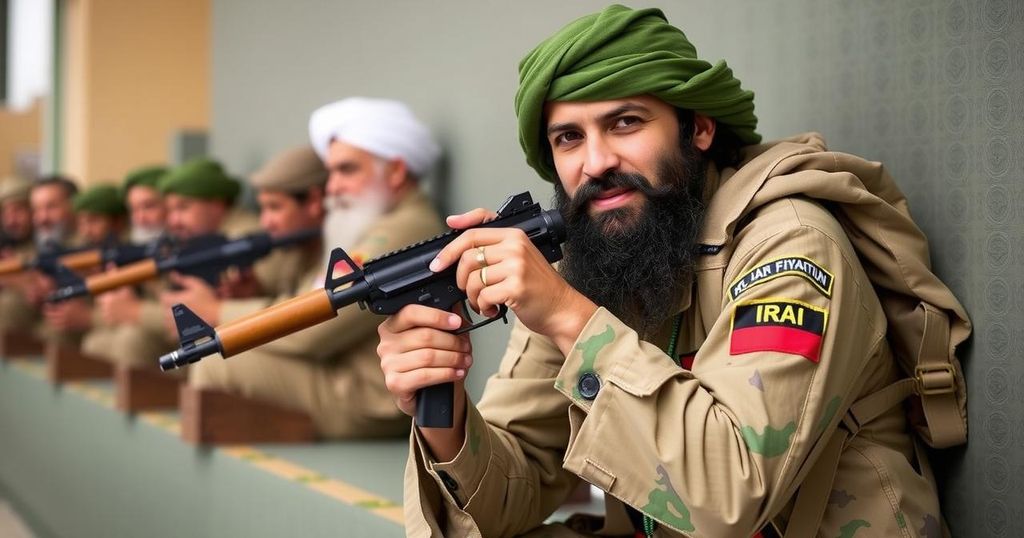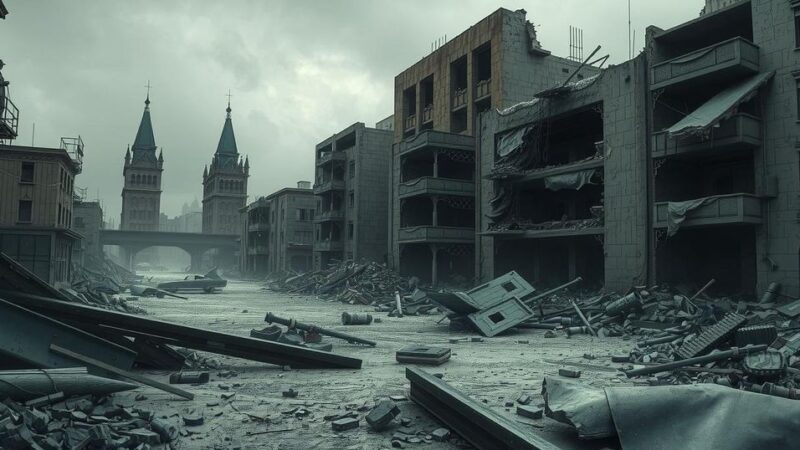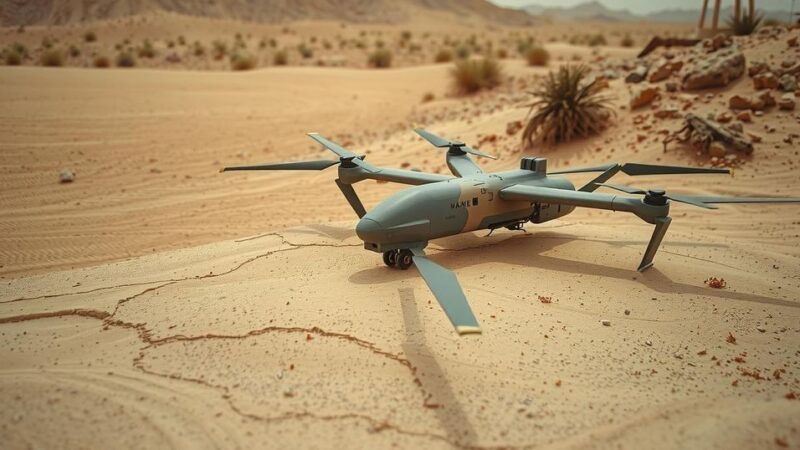Iran is supplying the Houthis with advanced weapons, allowing them to continue missile attacks on Israel and global shipping routes. Abdul Basit Al-Baher, spokesperson for the Yemeni army, highlighted that the Houthis are now heavily armed, thanks to Iranian support, especially following diminished capabilities of other Iranian proxies. Israeli intelligence is beginning to assess this emerging threat, marking the Houthis as a significant player in regional conflict dynamics.
Iran is reportedly augmenting its missile and drone supplies to the Houthi militia in Yemen, enabling the group to sustain its aggression towards Israel and global maritime activities for an extended period, according to Abdul Basit Al-Baher, the Yemeni army’s spokesperson in Taiz. He indicated that the Houthis have begun a series of missile attacks against Israel, underscoring Iran’s growing support following setbacks experienced by other Iranian proxies in the region, such as Hamas and Hezbollah. The conflict has intensified, with the Houthis now controlling significant territory in Yemen, and they possess advanced weaponry—including high-level missiles and drones—facilitated by Iranian technology and ongoing supply chains from Iran.
The geopolitical ramifications are significant, particularly for Israel, which has identified the Houthis as an emerging threat. Israeli security sources caution that while the Houthis may not possess the capabilities of Hezbollah, they have developed their own production capabilities, making them a relevant adversary. The need to neutralize Houthi leadership has been highlighted as crucial for any successful military campaigns against the group. As the United States prepares for a change in leadership with Donald Trump, there is speculation about potential escalations in military action against the Houthis as part of a broader strategy to counter Iran’s influence in the region.
The Houthi movement in Yemen, an Iranian-backed militia, has increasingly focused its military efforts on regional adversaries, particularly Israel, amid shifting dynamics in the Middle East. Following the decline of other Iranian proxies, such as Hezbollah and Hamas, Iran has turned to the Houthis as a strategic ally. With Yemen’s population largely under Houthi control, their military capacity has grown substantially, raising concerns for both regional security and international maritime routes. The fall of the Assad regime further incentivizes Iranian support for the Houthis, suggesting a strategic shift in Iran’s policies as it seeks to maintain influence amid changing power structures.
In summary, the Houthis’ increasing capabilities and their sustained missile threats against Israel are a direct result of bolstered support from Iran. The implications of this support extend beyond Yemen, potentially altering the balance of power in the Middle East and straining U.S., Israeli, and allied responses. The situation suggests that as long as Iranian backing endures, the Houthis can maintain their operations, necessitating strategic responses from impacted nations, especially with new U.S. leadership potentially influencing military actions against them.
Original Source: www.telegraph.co.uk






